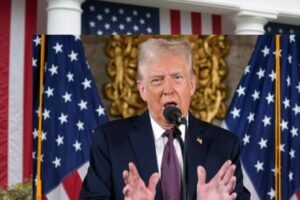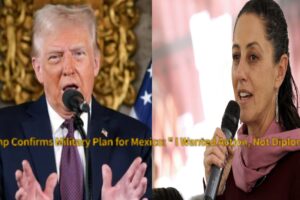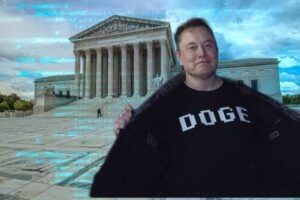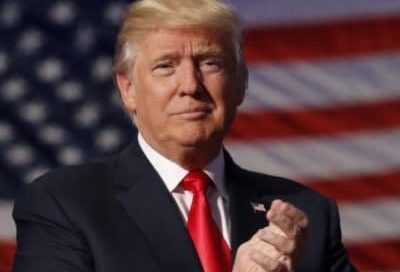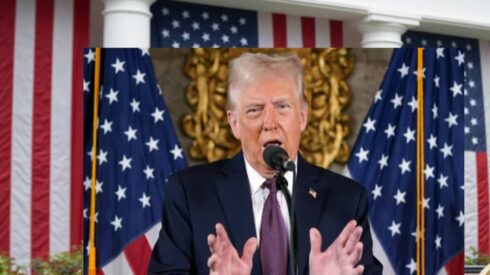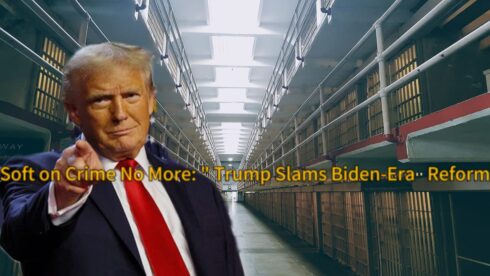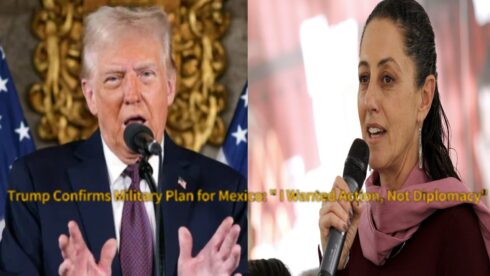Donald Trump secured a significant financial boost, raising $12 million at a high-profile fundraiser in San Francisco. The event was hosted by prominent tech venture capitalists Chamath Palihapitiya, David Sacks, and his wife Jacqueline, drawing considerable attention from the cryptocurrency community. This sector’s turnout was particularly notable, given the perceived hostility toward crypto by Democrats and the Biden administration.
Held in the exclusive Pacific Heights neighborhood, the fundraiser attracted Silicon Valley’s conservative-leaning investors, showcasing a blend of tech and politics. The hefty sum raised is expected to fuel Trump’s campaign as he pitches himself as a crypto-friendly president, aiming to capitalize on the growing disenchantment within the crypto community towards current regulatory approaches.
Judge Alerts Prosecutors Over Social Media Comment in Trump Trial
In an unexpected twist in Donald’s hush money trial, New York Justice Juan Merchan notified prosecutors and defense attorneys about a potentially compromising Facebook comment. The comment, made by a user named “Michael Anderson,” claimed a juror had disclosed Trump’s impending conviction a day before the jury’s actual guilty verdict. This revelation has sparked concerns about jury impartiality and the influence of social media on high-profile legal proceedings.
The post, which was swiftly deleted, raises questions about the integrity of the trial process and the potential for external influences. Justice Merchan’s brief letter to the involved parties highlights the ongoing challenges in maintaining fair trials in the digital age, where social media can rapidly spread information and, in some cases, misinformation. The incident underscores the need for vigilant monitoring of online activity related to active legal cases.
Trump’s Interview with Dr. Phil Sparks Controversy
Donald Trump participated in a controversial interview with TV psychologist Dr. Phil this week, where he made provocative statements, including that “sometimes revenge can be justified” in the context of a potential second term in the White House. The interview, criticized for its lack of challenging questions and unchecked false claims, especially regarding Trump’s recent conviction, has sparked significant media backlash.
Dr. Phil’s interview style, which allowed Donald to propagate conspiracy theories and misinformation, led to intense scrutiny and criticism. Following the broadcast, Dr. Phil faced a grilling in a CNN interview, where he was repeatedly corrected on legal practices and trial fairness. The episode highlights the ongoing tension in media interviews with political figures and the responsibility of interviewers to challenge unsubstantiated claims, particularly those made by influential individuals.
Trump’s Strategy for Presidential Vengeance Gets Clearer
The fallout from Donald Trump’s conviction on 34 charges has been multifaceted, with one significant consequence being the emboldened rhetoric and actions from Republican supporters. Trump’s public statements and the reactions from his base reflect a broader strategy aimed at framing his legal battles as a personal vendetta orchestrated by political adversaries. On Thursday, during an interview with television psychologist Dr. Phil, Donald declared, “Sometimes revenge can be justified.” This statement, coming from a former president, signals a concerning shift towards normalizing retribution as a political tool.
Trump’s assertions have found resonance within the Republican Party, particularly among those who perceive his legal troubles as a result of a conspiracy by the “Deep State” and Democrats. This narrative is not only a means of garnering sympathy but also serves as a rallying cry for his supporters. The party’s actions, both in the House of Representatives and at state levels, increasingly appear to be driven by a desire to avenge what they see as injustices done to Donald. This sentiment is likely to shape the party’s agenda and strategies in the coming election cycles, emphasizing a combative stance against perceived adversaries.
Legal Troubles and Public Reactions
In a recent development, the judge presiding over Trump’s hush money trial alerted both prosecutors and Trump’s defense team about a dubious Facebook post from a user claiming inside information about the trial’s outcome. The post, by a user named “Michael Anderson,” claimed that a juror, purportedly his cousin, had revealed Donald’s impending conviction before the jury’s decision was announced. This incident underscores the highly charged and polarized atmosphere surrounding Trump’s legal proceedings, where even social media posts can become focal points of controversy.
Furthermore, Trump’s rhetoric has taken a darker turn, with explicit threats aimed at his political opponents. During his interview with Dr. Phil, Trump reiterated his belief in retaliatory justice, stating, “Sometimes revenge can be justified.” This interview, which aired shortly after his conviction, also saw Trump lambasting the judge and jury involved in his case, and accusing President Joe Biden of being behind his prosecution. Such statements from a former president are unprecedented and have sparked widespread concern about the potential for increased political division and retaliation.
Trump’s threats to prosecute his political rivals if he returns to office reflect a broader strategy of using legal means as tools of political warfare. Dr. Phil addressed these threats directly during the interview, highlighting the implications of such a stance for the integrity of the American political system. As Donald continues to articulate his desire for revenge, the nation watches closely, aware that his words carry the potential to reshape the political landscape significantly.

